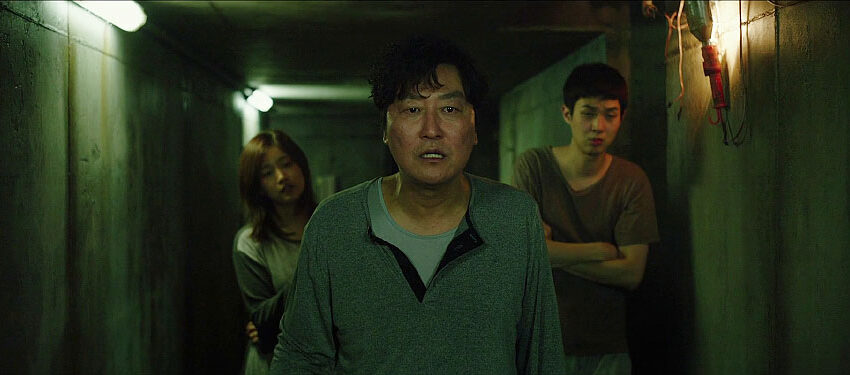Why Parasite is the best film of the 21st century: A complete breakdown

Why Parasite is the best film of the 21st century: A complete breakdown
In a landmark decision that has reignited global appreciation for cinematic excellence, The New York Times has ranked Bong Joon Ho’s Parasite as the best film of the 21st century.
The South Korean masterpiece, which made history by winning the Best Picture Oscar, is lauded for its thrilling narrative, sharp social commentary, and genre-defying brilliance.
As audiences and critics revisit what makes this film a timeless standout, Parasite continues to set the standard for global storytelling in modern cinema.
What Is Parasite About?
Parasite, directed by Bong Joon Ho, is a South Korean dark comedy thriller that explores class struggle, deception, and survival. The story follows the Kim family, who live in poverty and gradually infiltrate the wealthy Park household by posing as unrelated service workers. What begins as clever manipulation soon unravels into a gripping tale of moral ambiguity, secrets, and shocking violence. The film’s genre-bending style — blending satire, suspense, and horror — is one of the key reasons it’s hailed as a cinematic masterpiece.
What Awards Did Parasite Win?
Parasite made history at the 92nd Academy Awards (2020) by becoming:
-
The first non-English-language film to win Best Picture
-
Winner of Best Director (Bong Joon Ho)
-
Winner of Best Original Screenplay
-
Winner of Best International Feature Film
It also received the Palme d’Or at the Cannes Film Festival 2019, making Bong Joon Ho only the second Korean director to achieve the feat. The film’s sweeping awards run redefined global perceptions of what non-Hollywood films could achieve.
Why Is Parasite So Culturally Significant?
Parasite is more than a film — it’s a mirror to global inequality. Its themes of class division, economic disparity, and systemic injustice resonate universally, from Seoul to São Paulo to San Francisco. The symbolic use of vertical space, contrasting the underground semi-basement home of the Kims and the hilltop mansion of the Parks, visually illustrates the socio-economic gap. These elements made the film relatable to audiences worldwide, especially in a time of growing economic anxiety.
READ ALSO
100 best movies of the 21st century: ‘Parasite’ leads.. see full breakdown
What Makes Bong Joon Ho’s Direction Stand Out?
Bong Joon Ho is celebrated for his precise storytelling, genre fusion, and visual symbolism. In Parasite, his attention to detail is meticulous — every shot, prop, and piece of dialogue carries meaning. He balances satire and realism, creating moments that are simultaneously funny, tragic, and terrifying. Bong’s ability to shift tones seamlessly within a single narrative arc is a hallmark of his filmmaking genius.
Who Are the Main Cast Members?
-
Song Kang-ho as Kim Ki-taek (father of the Kim family)
-
Choi Woo-shik as Kim Ki-woo (son, also known as Kevin)
-
Park So-dam as Kim Ki-jung (daughter, “Jessica”)
-
Jang Hye-jin as Kim Chung-sook (mother)
-
Lee Sun-kyun as Park Dong-ik (wealthy father)
-
Cho Yeo-jeong as Choi Yeon-gyo (wealthy mother)
Their performances are subtle, nuanced, and emotionally charged — contributing significantly to the film’s authenticity and impact.
How Was Parasite Filmed and Produced?
The production design of Parasite is a masterclass in storytelling. The Park mansion was custom-built for the film, allowing complete control over camera movement, lighting, and symbolism. Director Bong collaborated with cinematographer Hong Kyung-pyo and production designer Lee Ha-jun to create a space that was both aspirational and haunting. Every element, from staircases to basements, serves a narrative and symbolic function.
Why Did The New York Times Rank Parasite as #1?
The New York Times chose Parasite as the greatest film of the 21st century because it represents a perfect blend of artistic brilliance, global accessibility, and social relevance. It’s a film that challenges, entertains, and enlightens — all while transcending language and cultural barriers. The Times’ selection also underscores a broader shift in the film industry toward celebrating international cinema and dismantling the once-Western-centric idea of “greatness” in film.
What Deeper Messages and Themes Does Parasite Explore?
Some of the film’s most-discussed themes include:
-
The illusion of meritocracy
-
The dangers of unchecked capitalism
-
How poverty affects behavior and morality
-
Human adaptability and desperation
-
Structural inequality in urban life
The title itself — Parasite — is open to interpretation. Who is truly the parasite: the poor leeching off the rich, or the rich living obliviously off the system?
What Impact Did Parasite Have on the Global Film Industry?
Parasite opened the floodgates for greater recognition of non-English films in mainstream Western media. It boosted international interest in Korean cinema and television, paving the way for the global success of shows like Squid Game. The film also influenced conversations around representation, subtitles, and the global box office’s willingness to embrace diverse stories.
🗨️ Famous Quotes and Critical Reception
Bong Joon Ho’s Oscar night quote went viral:
“Once you overcome the 1-inch-tall barrier of subtitles, you will be introduced to so many more amazing films.”
Critics across the board called it a “masterpiece,” with The Guardian, The New Yorker, Variety, and RogerEbert.com giving it top marks. It holds a 98% rating on Rotten Tomatoes and is frequently cited as one of the most influential films of the century.

